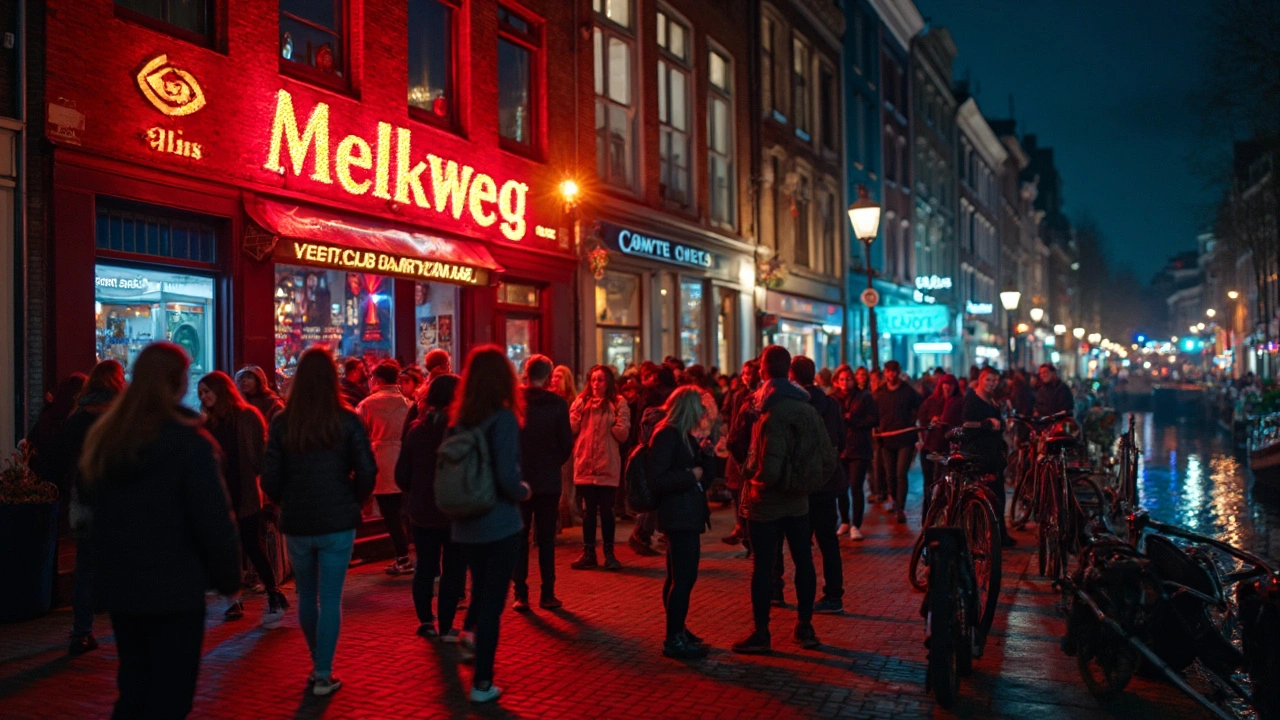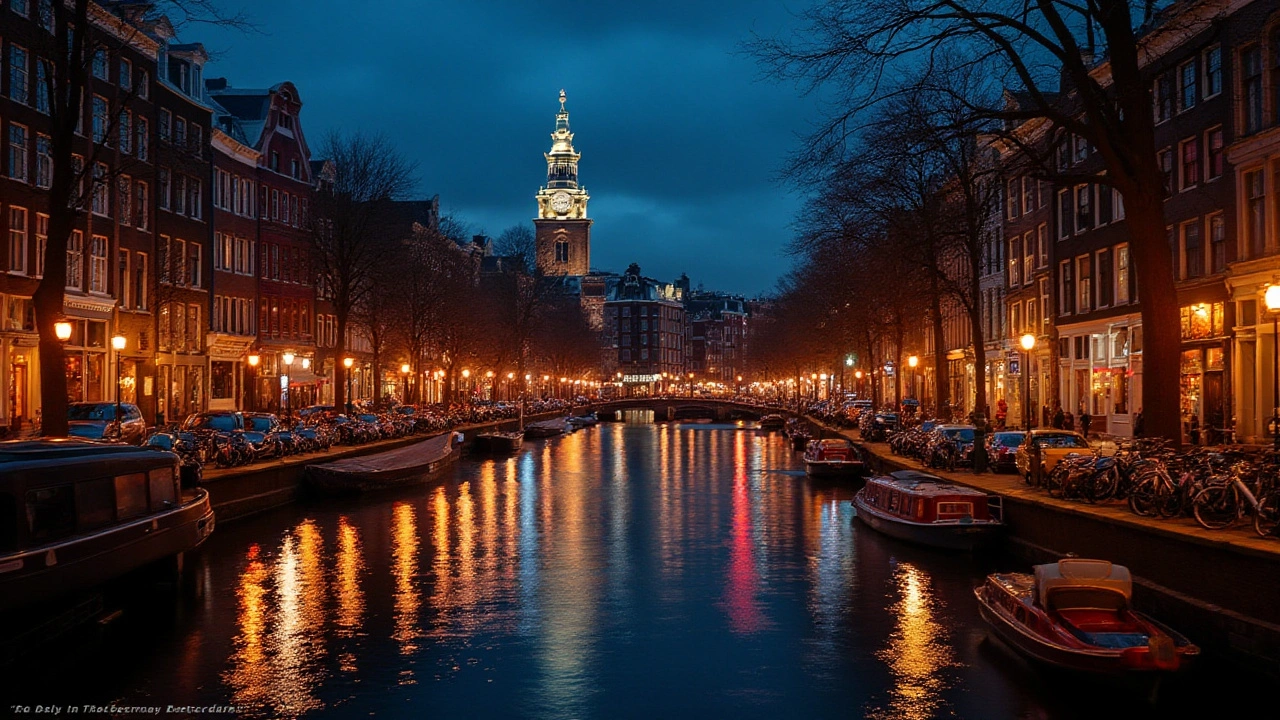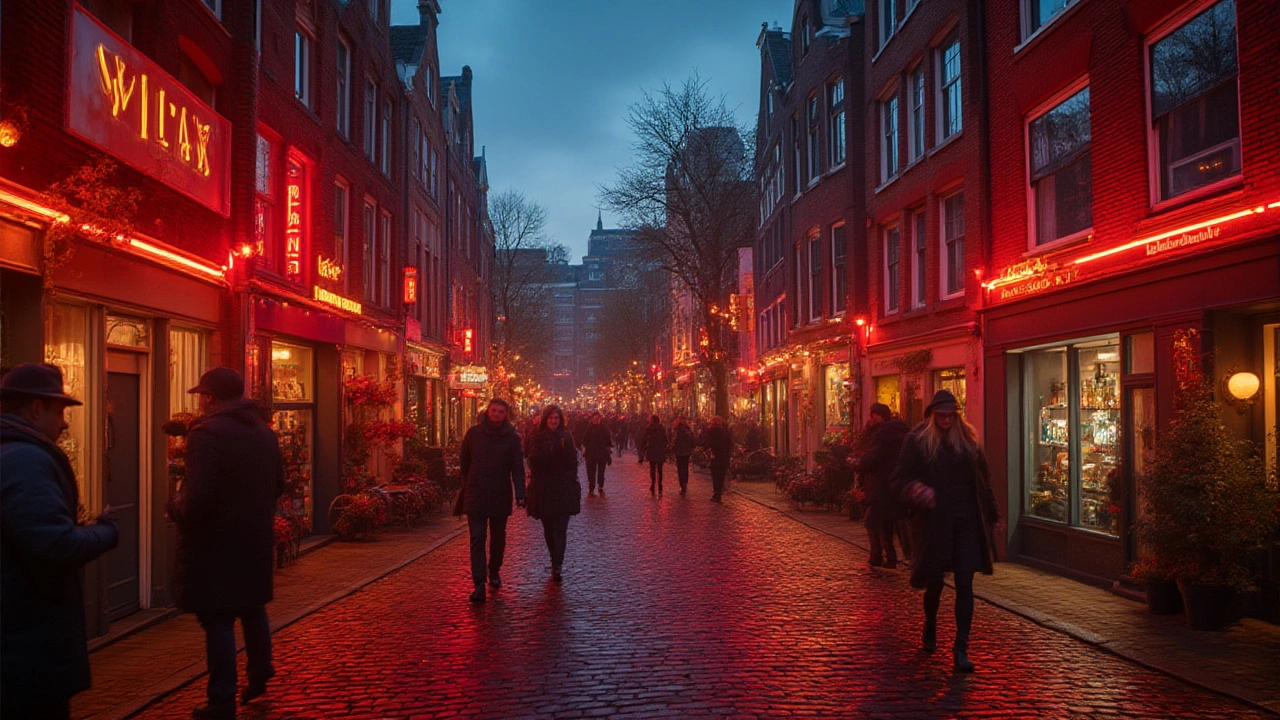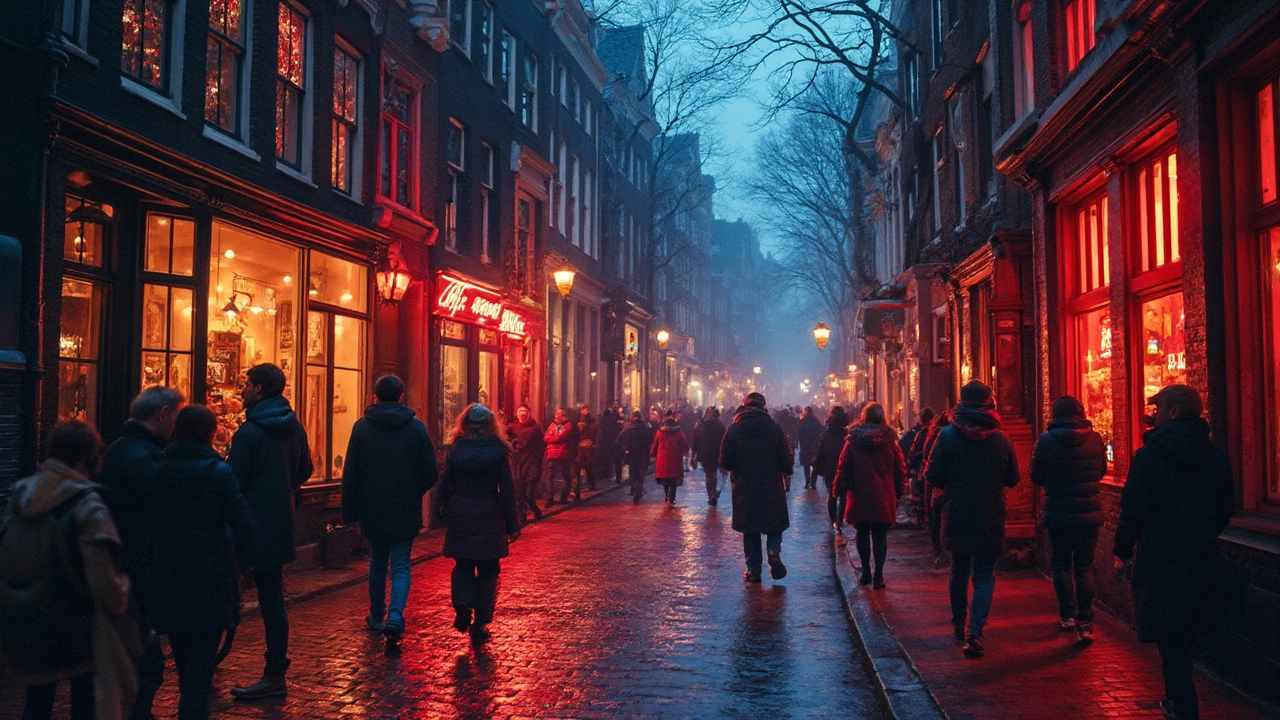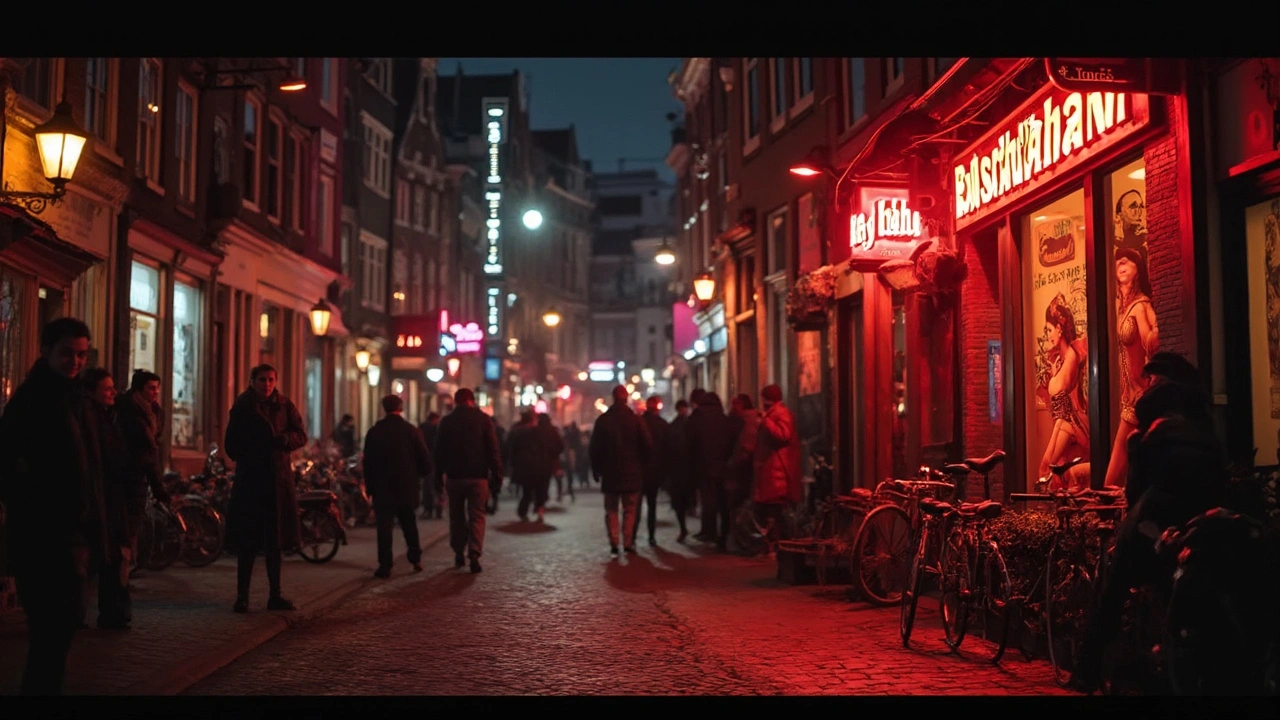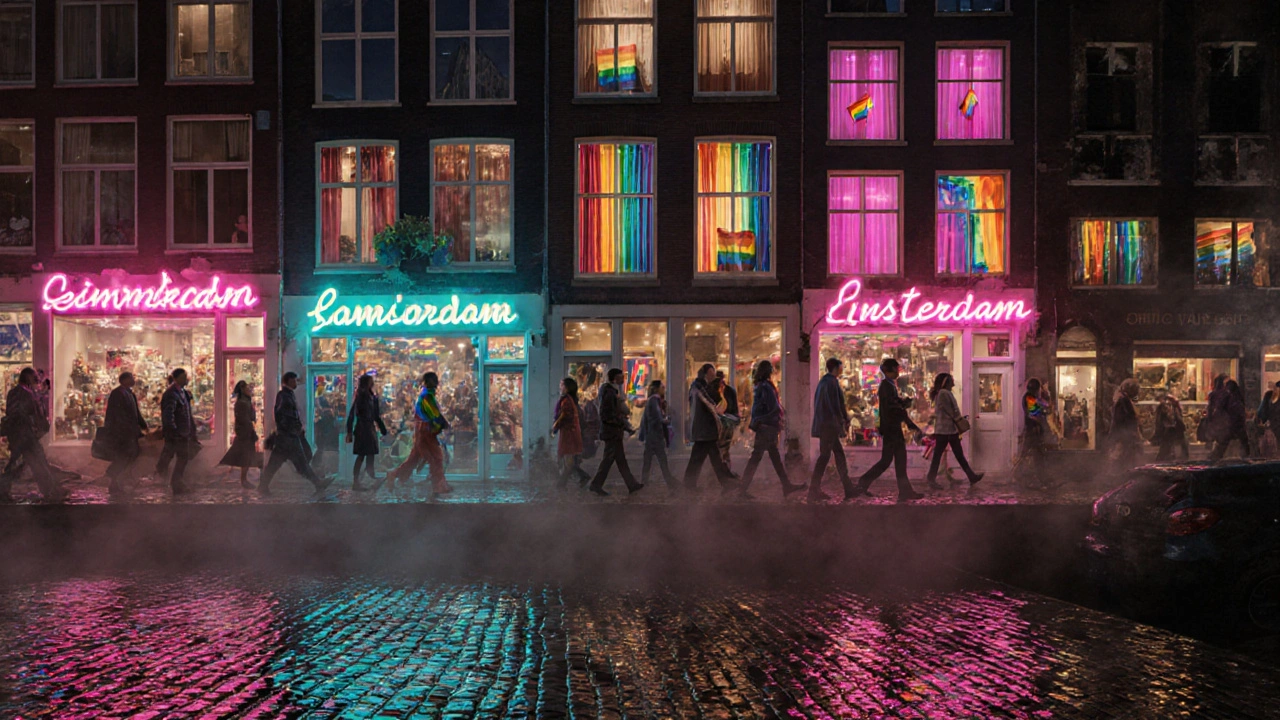
Ever wondered why Amsterdam’s neon‑lit streets feel surprisingly inclusive for queer clients and workers alike? The answer lies in a mix of progressive laws, a historic tolerance for sex work, and a growing LGBTQ+ presence that reshapes the city’s red‑light narrative.
Key Takeaways
- Netherlands’ sex‑work model legalizes prostitution, giving LGBTQ+ sex workers clear rights.
- The Amsterdam Red Light District now hosts dedicated spaces for gay, lesbian, and transgender clients.
- Independent queer escorts often work through niche agencies that specialize in LGBTQ+ matchmaking.
- Safety nets such as the Amsterdam municipality and NGOs provide legal aid and health services.
- Clients looking for LGBTQ+‑friendly call girls should respect boundaries, verify age, and use trusted platforms.
Call girls in Amsterdam are professional sex workers who operate primarily in the city’s historic Red Light District (De Wallen). Unlike stereotypical street‑level prostitution, many are booked through agencies, online profiles, or private referrals, offering a range of services from companionship to intimate encounters. Their work is fully legal under Dutch law, which distinguishes between consensual sex work and human trafficking.
Why the LGBTQ+ Community Matters
LGBTQ+ community in Amsterdam is one of Europe’s most visible, with over 150,000 people identifying as queer, according to the 2023 municipal census. This critical mass creates demand for sex‑work services that respect diverse gender identities and sexual orientations.
Historically, gay men found discreet rooms in the same windows that housed heterosexual call girls, while lesbian couples relied on private apartments. Today, the scene is more structured: dedicated agencies and online platforms list “gay friendly” or “trans‑affirming” escorts, and some windows explicitly display rainbow flags.
Legal Framework: Dutch Prostitution Laws
In 2000 the Netherlands passed the Prostitution Act, which legalized sex work, mandated health inspections, and required registration with local municipalities. The law applies equally to all genders and sexual orientations, meaning that LGBTQ+ sex workers enjoy the same legal protections as their straight counterparts.
Key provisions include:
- Mandatory age verification (18+).
- Right to a safe workplace, enforced by the Amsterdam municipality’s licensing office.
- Access to health insurance and regular STI screening through public health services.
Red Light District’s Queer Evolution
The iconic Amsterdam Red Light District (De Wallen) has gradually adapted its visual language. You’ll now see windows with rainbow‑colored curtains, gender‑neutral signage, and pamphlets in Dutch, English, and German that advertise “gay, lesbian & trans friendly” services.
Several establishments, such as “Club Vurven” and “The Golden Gate”, have introduced “ladies‑only” nights for lesbian clients and “drag‑queen” bookings for trans‑women. These initiatives are often coordinated with community NGOs that monitor harassment and ensure compliance with anti‑discrimination statutes.
Challenges Faced by LGBTQ+ Sex Workers
While legal protections exist, queer sex workers still confront unique hurdles:
- Stigma: Even in a liberal city, trans and gender‑non‑binary workers report higher levels of social exclusion.
- Safety: Trans‑women are statistically more vulnerable to violence, prompting the need for specialized security measures.
- Health: Hormone therapy can interact with certain medications, requiring targeted medical advice.
Organizations like Human Rights Watch and local NGOs such as “Medi‑Queer” provide advocacy, counseling, and emergency hotlines tailored to LGBTQ+ sex workers.
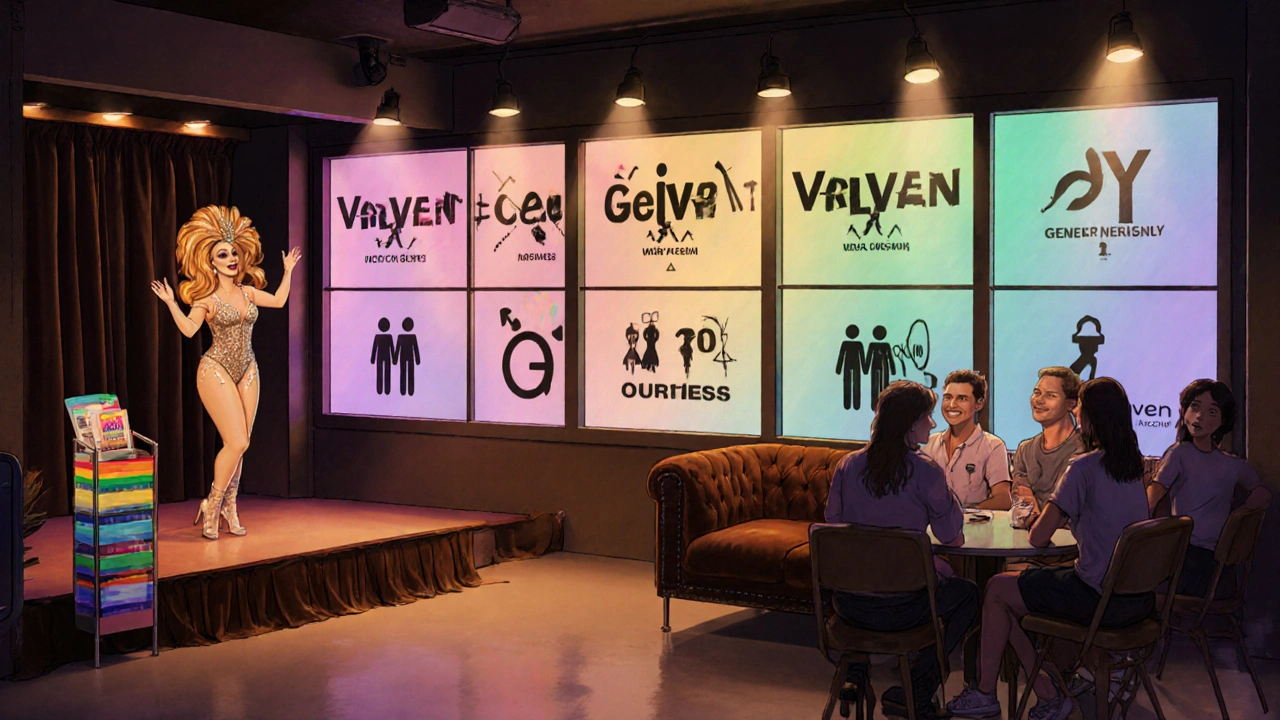
Business Models: Agency vs. Independent
Queer escorts operate under two primary models. The table below contrasts the most common features.
| Aspect | Agency‑Based | Independent |
|---|---|---|
| Client Acquisition | Managed through niche LGBTQ+ platforms and vetted referrals. | Self‑advertised via personal websites or social media. |
| Fee Structure | Agency takes 15‑25% commission; higher upfront security. | Full earnings retained; higher responsibility for safety. |
| Legal Support | Agency handles licensing paperwork. | Worker must register individually with municipality. |
| Safety Measures | Agency‑provided escort‑partner system and panic‑button app. | Self‑managed safety plans; often rely on community watch. |
| Flexibility | Set schedules, limited negotiation on rates. | Customizable hours and negotiating directly with clients. |
Support Networks and Resources
For anyone navigating the queer escort scene-whether you’re a worker or a client-knowing where to find help is crucial. Below are essential Dutch resources:
- Sex Workers’ Rights Foundation (SWRF): Offers legal counsel, free STI testing, and safe‑house referrals.
- Rainbow Safe Space: A community centre in Amsterdam that hosts workshops on consent, trans health, and client etiquette.
- Amsterdam Police - LGBTQ+ Liaison Unit: Dedicated line for reporting harassment without fear of criminalizing sex work.
- Trans‑Support Amsterdam: Provides hormone‑therapy guidance and emergency cash assistance.
Client Etiquette: How to Book Respectfully
If you’re looking for a queer escort, follow these simple steps to ensure a smooth, consensual experience:
- Choose a reputable agency or verified independent profile that explicitly states LGBTQ+ services.
- Read the escort’s bio carefully-note pronouns, boundaries, and any health considerations.
- Confirm age and identity via a secure video call; Dutch law requires 18+ verification.
- Discuss rates, services, and safety protocols before meeting. Never pressure for extra services.
- Arrive at the agreed location (often a hotel or private suite) on time; respect the escort’s privacy.
- After the encounter, provide feedback through the agency’s system or a discreet thank‑you message-this helps the community maintain standards.
Future Outlook
Amsterdam’s reputation as a tolerant city is being reinforced by its evolving queer sex‑work scene. With ongoing legislative reviews-such as the proposed 2026 amendment that would strengthen anti‑discrimination clauses-expect even more inclusive practices. As visibility grows, so does the responsibility of both workers and clients to uphold safety, consent, and respect.
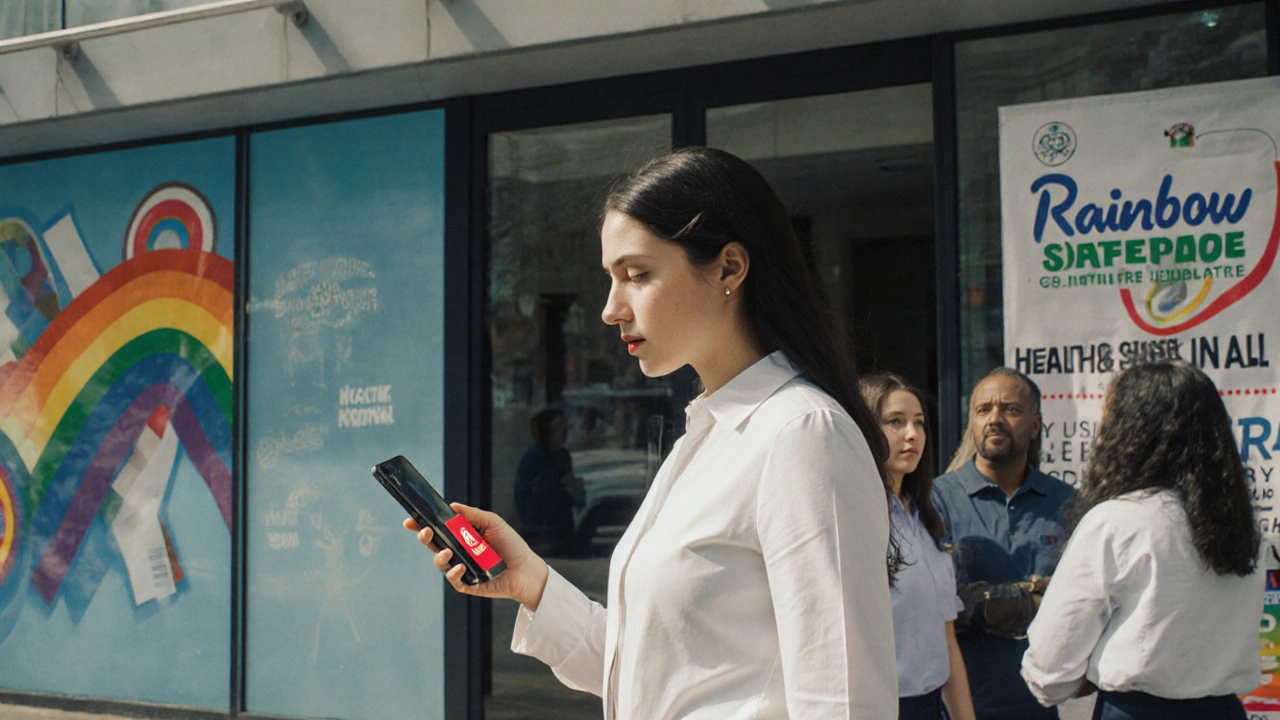
Is prostitution legal for LGBTQ+ people in the Netherlands?
Yes. Dutch law treats sex work as a profession regardless of gender or sexual orientation. All workers must be 18 or older and registered with the municipality.
Where can I find queer‑friendly escorts in Amsterdam?
Several niche agencies advertise LGBTQ+ services, and many independent escorts list themselves on platforms that highlight rainbow flags. The Red Light District also features windows with clear signage for gay, lesbian, and trans clients.
What safety measures are recommended for trans sex workers?
Use agency‑provided panic‑button apps, work with trusted partners, ensure the location is vetted, and stay in touch with NGOs like Trans‑Support Amsterdam for emergency assistance.
Do I need to pay taxes on earnings from escort work?
Yes. Earnings are considered self‑employment income. The Amsterdam municipality provides resources to help sex workers register for tax purposes and claim deductions for safety equipment.
How can I verify that an escort is registered and safe?
Look for a license number on the agency’s website or ask the escort for proof of registration. Trusted agencies display this information openly, and many independent escorts share a QR‑code that links to the municipal registry.

